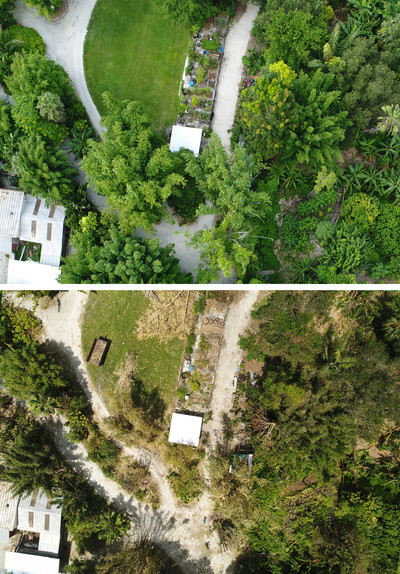After the Storm
已出版
2017-10-04
Contributed by: Gene Fifer
On September 10th Florida was hit by Hurricane Irma after it inflicted extensive damage on islands in the Caribbean from Barbuda to Cuba. Irma’s damage in Florida began as a category 4 hurricane in the Keys and reduced in strength as it traversed the peninsula.
ECHO’s Global Farm sustained damage primarily to mature trees with little damage to buildings, in large part due to staff efforts to stabilize and protect farm buildings, equipment, and livestock. Many of the strategies deployed at ECHO were lessons learned after Hurricane Andrew in 1992. Much was learned in the aftermath of Hurricane Andrew, especially in Homestead, FL, by researchers at the University of Florida (UF). Several ECHO staff attended workshops on hurricane preparedness given by Dr. Jonathan Crane of UF, who is one of our presenters for this year’s ECHO Conference. Dr. Crane’s plenary session on tropical fruit production will be on Tuesday morning November 14th. Dr. Crane’s article, “Preparing for and Recovering from Hurricane and Tropical Storm Damage to Tropical Fruit Groves in Florida” can be downloaded here.
This year’s ECHO International Agriculture Conference (November 14-16) will include a presentation on storm-resilient farm practices by our Florida staff. It will focus on factors that influence plant survival in high winds, which species are prone to damage and which are not, and strategies to stake and trim trees and bamboo. A short video taken at the ECHO Global Farm soon after the hurricane is available here.
We look forward to sharing and learning about storm strategies with our conference attendees and learning more from Dr. Crane. See you in November.
Register now for the 2017 ECHO International Agriculture Conference